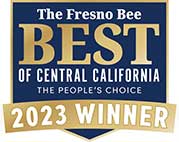Vision Statement
West Hills College Coalinga is committed to a relentless pursuit of student success.
Mission Statement
West Hills College Coalinga offers associates degrees, transfer degrees, career and technical certificate programs and is committed to inspiring all learners by providing dynamic and high quality academic programs and services, including those offered through distance education. The college fosters its students’ ability to think, communicate, effectively reason and develop compassion through learning, connection, and service.
Goals
- Improve success, retention and persistence of all students by improving transfer rates and the number of certificate and degree awarded.
- Increase enrollment by recruiting students locally and internationally via responding directly to the current and projected demographic and global economic trends
- Support and strengthen Career Technical Programs through research and sustained interaction with the business community.
- Develop new and strengthen existing external collaborative relationships and partnerships.
- Advance a learning college culture that promotes a passion for learning, builds leadership and civic engagement across all stakeholder groups.
- Provide new and expanded opportunities for faculty and staff development which support an atmosphere of excellence in academics and student support services.
Institutional Learning Outcomes (ILOs)
Communication Competency- Written and Oral Communication
- Students will demonstrate effective communication skills in reading, writing, listening, speaking and communicating in different formats.
- Students will develop and present cogent, coherent and substantially error-free writing for communication to general and specialized audiences.
- Students will demonstrate effective interactive communication through discussion, i.e., by listening actively and responding constructively and through structured oral presentations to general and specialized audiences.
- Students will negotiate with peers an action plan for a practical task and communicate the results of the negotiation either orally or in writing.
Analytical Inquiry- Critical Thinking and Problem-Solving Skills
- Students will demonstrate the ability to collect information in response to a question or problem; analyze and draw valid conclusions from statements, images, data, and other forms of evidence; and assess the implications and consequences of conclusions.
- Students will identify and frame a problem or question in selected areas of study
and distinguish among elements of ideas, concepts, theories or practical approaches
to the problem or question.
Quantitative Reasoning- Mathematical and Scientific Reasoning
- Students will be able to: analyze, estimate, use, and evaluate quantitative information using words, data, graphs, and symbols; and apply the scientific method to questions regarding observable natural, physical and social phenomena.
- Students will present accurate interpretations of quantitative information on political, economic, health-related or technological topics and explain how both calculations and symbolic operations are used in those offerings.
- Students will create and explain graphs or other visual depictions of trends, relationships
or changes in status.
Information Competency- Technology and Media Literacy
- Students will be able to locate, evaluate, synthesize and use multiple forms of information, data, media, and technology.
- Students will identify, categorize, evaluate and cite multiple information resources
so as to create projects, papers or performances in either a specialized field of
study or with respect to a general theme within the arts and sciences.
Ethical Reasoning
- Students will describe the ethical issues present in prominent problems in politics,
economics, health care, technology or the arts and show how ethical principles or
frameworks help to inform decision making with respect to such problems.
Ability to Engage Diverse Perspectives
- Students will be able to demonstrate knowledge of significant social, cultural, environmental and aesthetic perspectives.
- Students will describe how knowledge from different cultural perspectives might affect interpretations of prominent problems in politics, society, the arts and global relations.
- Students will describe, explain and evaluate the sources of his/her own perspective
on selected issues in culture, society, politics, the arts or global relations and
compare that perspective with other views.
Personal, Academic, and Career Development
- Students will assess their own knowledge, skills, and abilities, set personal, educational, and career goals, work independently and in group settings, and identify lifestyle choices that promote self-reliance, financial literacy, and physical, mental and social health.
Accreditation
West Hills College Coalinga is accredited by the Accrediting Commission for Community and Junior Colleges of the Western Association of Schools and Colleges, 10 Commercial Boulevard, Suite 204, Novato, CA 94949, 415.506.0234, an institutional accrediting body recognized by the Council for Higher Education Accreditation and the U.S. Department of Education. This is an institutional accrediting body recognized by the Council on Postsecondary Accreditation and the U.S. Department of Education. It is listed in the Directory of the Western Association of Schools and Colleges and in the Accredited Institutions of Postsecondary Organizations, 1990-91, a publication of the American Council on Education.
West Hills College Coalinga is a member of the California Association of Community and Junior Colleges and the American Association of Community and Junior Colleges. The college is approved by the United States Immigration and Naturalization Service to accept international students.
